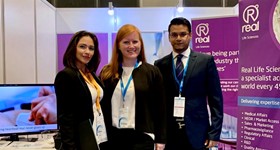Are there more opportunities in South Korea’s medical scene following the government’s ₩500b investment?

Yonhap News has recently announced that South Korea has pledged to commit ₩500 billion this year with the aim of positioning the country as a renowned pharma and biotech hub globally. South Korea’s government spending has always played a crucial role in boosting the economy by creating more jobs and encouraging innovation that can contribute to the country’s sustainable growth.
What does this mean for South Korea?
Pharma and biotech companies have emerged as growth engines that can fuel the South Korean economy in the coming years. This surge in companies could potentially be a factor to alleviate the burden of chronic diseases which is soaring globally. Relevantly, PwC’s Pharma 2020 Report reported that as greater longevity pushes many countries to lift the retirement age to 68, more people might be susceptible to contracting illnesses while working full-time.
South Korea’s investment will be focused on greater research and development (R&D) and focus on prevention rather than cure. The country is anticipating greater innovation, more projects and ultimately, more hiring in clinical, R&D and biotech in the year.
How will this investment impact the sector?
- More innovation of drugs and clinical trials
As reported by the PharmaVoice, the South Korean government will spend ₩10 trillion on projects to develop new clinical trials and drugs over the next five years in collaboration with local pharma companies.
For example, South Korea’s GC Pharma will be focussing its R&D resources on three business areas – blood products, vaccines and orphan drugs. The goal is to receive approval for 7 new clinical trials, 8 products for marketing and launch 5 products over the next three years.
GC Pharma also reported that it will accelerate efforts to localise imported vaccines and increase its presence in the global Varicella vaccine market by launching a novel Varicella vaccine in 2020. It also confirmed that interim data from the phase 1 study of its investigational new shingles vaccine will be presented overseas in August and a possible licensing deal is expected.
In terms of the pipeline of orphan candidate drugs for rare diseases, GC Pharma is concentrating its research efforts to treat haemorrhagic and metastatic diseases.
- More projects and overseas collaboration
The Korea Pharmaceutical and Bio-Pharma Manufacturers Association (KPBMA) and the Korea Trade-Investment Promotion Agency (KOTRA) have agreed to support the overseas expansion of the pharma industry.
They will be opening a R&D centre, launching joint overseas partnerships on global projects, and working with government agencies stationed abroad.
Both organisations also agreed to engage in cooperative activities in educational spaces such as research, seminars, conferences, and lectures.
- More job opportunities to look out for
As reported by Fierce Biotech, South Korea’s investment aims to create 1 million jobs in the pharma, medical, clinical and biotech industries. Through tax benefits in R&D facilities and other perks, the intention is to get local and foreign businesses to invest more in the industry.
An example is how AstraZeneca is already set to spend ₩730 million on R&D in South Korea over the next five years. The commitment is part of a wider agreement between organisations based in South Korea and Sweden.
Is there any limitations with South Korea’s chronic talent shortage?
Pharma and biotech sectors are critical business areas that can contribute to the creation of jobs and add value to key industries that are essential for sustainable growth. While local companies such as Chong Kun Dang Pharmaceutical, Samsung BioLogics and Hanmi Pharmaceutical have begun to establish themselves on the world stage, there is a limited pool of Korean drug developers with the experience to help South Korea’s promising biopharma industry.
According to the Korea Biotechnology Industry Organisation, pharma and biotech firms failed to fill most of the job vacancies in 2018. Notable is the fact that companies failed to fill the job vacancies not because of a lack of applicants, but because of them lacking the skills and professional knowledge required. South Korea is struggling to secure qualified employees to conduct R&D and there is a strong demand to nurture talented workers, prepare them for the future of the workforce and improve retention of employees. This is also in light of growing concerns over compliance and ethics within South Korea’s pharma market with corruption on the rise.
Will compliance continue to be an issue in South Korea?
Global firm Novartis is stepping up its internal compliance processes and ethics training globally, including South Korea. In FiercePharma’s article, Novartis is said to implement a specified set of compliance obligations including the establishment of a compliance officer and compliance infrastructure, training, a risk assessment program, and outside monitoring.
Expert lecturers from International Anti-Corruption Academy (IACA) delivered sessions to medical and pharma professionals on topics ranging from corruption prevention and media relations to ethical dilemmas and organisational integrity. Focus was placed on maximising compliance effectiveness in South Korea’s pharma industry through gaining key insights on specific pharma sector corruption case studies.
How can Real Life Sciences help?
South Korea is revising its strategies to not only attract more talent, but also invest greatly in the pharma and biotech sector that can support their growth. If you are looking for opportunities within South Korea’s pharma and biotech market, or if your company is looking for niche talent to support your organisation’s hiring strategy, connect with us on LinkedIn or drop us an email at singapore@realstaffing.com.




